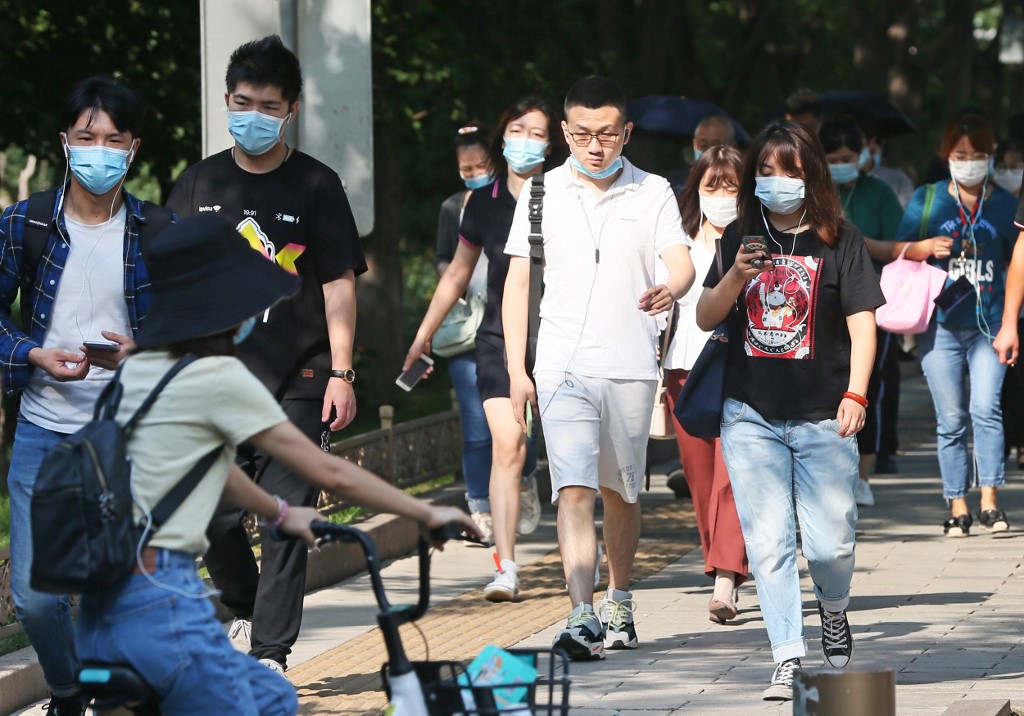(ATF) On the surface larges swathes of China’s population look to be broke, whereas in reality they have put most of their money into buying a house or other investments. This predicament has been highlighted by a research report released recently by Jufu Finance.
The report followed a revelation by central bank statisticians that 560 million people in China had “zero” deposited in their bank accounts.
Although elderly and minors were included in that figure, researchers at Jufu Finance were concerned that this number was still too high. They questioned whether it was authentic, saying, “In making money, as we all know, the income level of residents has a very close relationship with the country’s economic development.”
In China, following a tumultuous 20th Century, it took citizens a long time to stop “hiding their money under the bed” and to trust banks enough to deposit their savings with them. Unless people were suspected of wrongdoing, the government promised not to check people’s bank savings accounts, unlike in Western nations where bank accounts are routinely scanned by officials for tax and other reasons. But in China, you need a special license to check an individual’s bank account.
But while the government had worked to build up trust in banks, other factors came into play. According to the central bank, as of the end of 2019, the balance of deposits in China’s household sector reached 82.14 trillion yuan ($11.96 trillion).
Jufu Finance said something seemed to “limit” the consumer spending of Chinese people in their daily lives.
China’s economy has been developing rapidly since the 1990s, and at the same time, the income level of workers has been continuously rising. Nowadays, the majority of people in China have monthly incomes of more than 4,000 yuan ($582), and many have monthly incomes of more than 10,000 yuan ($1,456).
The income level of Chinese workers has been constantly improving, but some citizens have got into a “situation” and feel that their “consumer ability” has not increased much, as their savings deposits have not increased in line with the rise in income levels.
Jufu Finance asked the question: What was is soaking up this income growth?
Even though workers were being paid higher salaries, people felt they were not able to buy more, nor save. And many families in China now are in a “low deposit” or “zero deposit” category at the end of every month. Others have savings but are afraid to consume, the researchers said.
Housing costs
Jufu said the main culprit was housing costs. This is the “biggest factor” draining Chinese citizens’ wealth of Chinese residents. “As we all know, housing prices in many areas of our country are now at a high level. Even in third- and fourth-tier cities, the value of a house is more than one million yuan,” Jufu Finance reports.
This price is not a small figure for ordinary families. Many ordinary families in China choose to bear decades of debt in order to buy a house. The family collects the down-payment for the house, and then it takes decades to pay off the remaining mortgage, which has become a “standard” predicament for many families.
In order to buy a house, many ordinary families “emptied” their deposits, savings and even took on several mortgages, partly because they see property as the safest investment. But under such circumstances, how can these families save money? Even if some have deposits and are thinking of buying a house, they dare not spend at will. This situation has become “the normal” situation in China, Jufu Finance says.
Previously, the central bank released survey data, which showed that investment in houses represented 60% or even higher of household wealth. In order to buy a house, Chinese citizens need to considerable debt – hundreds of thousands or millions of yuan. This situation can be seen everywhere in China, the report said.
Under such circumstances, a large amount of China’s capital has flowed into the real estate sector. This why many people feel that their income has been gobbled up and that their savings or wealth is “weakening”.
But, the stock market and other financial products have also “divided up” the wallets of Chinese residents.
Many people are now unwilling to “hold money” in their hands. They all want to invest money, realising that “money makes money”. The stock market and banks’ wealth management products have all become popular, and these have also “emptied” people’s wallets.
Jufu Finance says that this mentality means Chinese people are now “poorer”. Many people’s assets total millions, or tens of millions, but still “do not dare to consume”.
Experts have also said that this phenomenon – citizens who “dare not consume” – is not good. It creates a problem for central government planners who are now trying to stimulate the country’s consumer economy.
With the global downturn in exports of consumer goods due to the impact of the coronavirus and subsequent disruption from its trade war with the US, geopolitical tensions and other reasons, China needs its consumers to soak up excess output.
But many citizens feel that their wallets are “empty”, because their money is tied up in investments. This raises considerable doubt about the viability of the government’s new, and very hopeful, economic strategy.
























